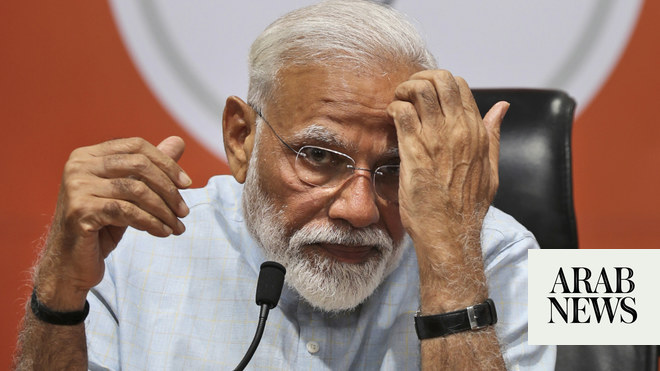
Non-Muslim religious groups face challenges in operating houses of worship, holding board elections, and exemptions from mandatory religion courses in schools
Report adds to concerns raised when Erdogan reconverted the historic Chora Church and famed Hagia Sophia into mosques last summer
ANKARA: A new report released Wednesday follows a trend from the US State Department in criticizing Turkey for restricting the rights of non-Muslim religious groups in the country.
The latest report focused on the challenges non-Muslim religious groups have faced in operating houses of worship, holding board elections for their foundations, and obtaining exemptions from mandatory religion courses in schools, which are in violation of the European Court of Human Rights’ 2013 ruling.
The US also expressed concerns when Turkish President Tayyip Erdogan reconverted the historic Chora Church, one of Istanbul’s most celebrated Byzantine buildings, and the famed Hagia Sophia into mosques last summer.
In 2020, religious minorities had difficulties in obtaining exemptions from mandatory religion classes in schools while the Greek Orthodox Halki Seminary remained closed, the report noted.
“The government continued not to recognize Ecumenical Patriarch Bartholomew I as the leader of the world’s approximately 300 million Orthodox Christians, consistent with the government’s stance that there was no legal obligation for it to do so,” the report said.
According to the report, the US criticized the difficulties that Protestant communities faced in training indigenous Turkish clergy in their congregations as “they relied on foreign volunteers to serve them in leadership capacities.”
However, “they could not operate training facilities in-country,” the report added.
Another annual report for 2021 released last month by the US Commission on International Religious Freedom found that an independent government panel urged Ankara to address longstanding religious freedom issues. It said the religious freedom conditions in Turkey were on a “troubling trajectory.”
The commission, which criticized the vandalism of places of worship in Turkey, also recommended that the US State Department include Turkey on the special watch list for religious freedom violations, and criticized the Turkish government for being “divisive and hostile” against its own religious minorities.
The trial of an Assyrian priest, Sefer Bilecen, who was sentenced to two years in jail on terrorism charges, was also described by the commission as a politically motivated move.
Anna Maria Beylunioglu-Atli, a lecturer at MEF University in Istanbul, said the problems that Turkey’s religious minorities have been facing are directly linked with the authoritarianism trend in the country.
“What the religious minorities experienced over the past year is the inevitable continuation of the general trend of hate speech and discrimination in line with the rising Islamic rhetoric within the society,” she told Arab News.
She added: “Since the foundation of the republic, there was a similar trend in Turkey to restrict the religious freedoms of minorities. But, the recent Islamist rhetoric in the overall politics consolidated it further.”
Such international reports do not have a transformational effect on Turkish domestic politics anymore, Beylunioglu-Atli said.
“What Turkey needs is an indigenous transformation by providing its religious minorities with citizenship rights,” she said. “Otherwise, such reports do not push the rulers to change the living conditions of the minorities in the country.”
US President Joe Biden and his administration have put the fight against all forms of religious discrimination at the center of their agenda. It also reflects the effort of the US State Department in highlighting the status of religious freedom in several countries around the world, including Turkey.
Dr. Mine Yildirim, head of the Freedom of Belief Initiative and Eurasia Civil Society Program at the Norwegian Helsinki Committee, said measures taken by the authorities in relation to the coronavirus (COVID-19) pandemic had an impact on the religion or belief communities in interesting ways.
“Our observations and interviews indicated that in 2020 some communities felt that when the public authorities took measures related to curfews and lock-downs, the functioning and use of mosques were taken into account whereas the days of worship of other places of worship were not considered,” she told Arab News.
Yildirim said that there have been fewer attacks or vandalism against churches in 2020, mainly due to the fact that churches have been closed, and as such Christians were less visible.
“Some Alevi and Christian religious leaders have observed that the pandemic has also exasperated the inequalities in the context of public funding for religious services which is solely provided for such services provided through the Presidency of Religious Affairs,” she said.
“As they were not being able to come together in their places of worship some communities received fewer donations whereas their costs for rent and utilities and salary of religious leaders continued.”












